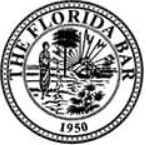If you live in a condominium, you likely have had interaction with the condo board, which is the governing body of the condominium complex. There may even have been a time when the interaction you had was less than pleasant, which may have left your wondering how much power the board actually has.
According to The Cooperator, there are limitations to the power of a condo board even if it acts like it has complete control.
The governing documents
Most condo boards have bylaws, which serve as their operating rules and governing documents. The bylaws should directly spell out the powers the board has, and you should have a right to read those bylaws so that you understand them prior to moving into a condo complex. The board should follow the bylaws, and anything it does that is not in there would be something that is not acceptable and an overreach of power.
Specific issues
There are some specific ways a condo board may try to exert its power and overstep the boundaries. One common issue is the assessment of fines for issues not specified in the bylaws but which the board suddenly feels the need to control.
Another example is trying to forbid someone from moving in. You own your condo and have the right to sell it to whoever you wish. The only way the condo board can stop you from selling to the person you want is to buy the condo from you. It can use the first right of refusal to buy it even if someone else has put in an offer.
Security is another area where issues of power can come up. The condo board has the right to ensure the security of the property, but it cannot infringe on your right to privacy. All security measures must be reasonable.







